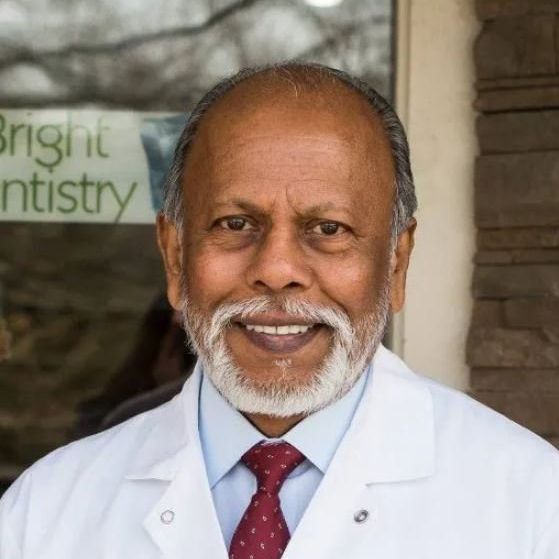Our Most Frequently Asked Questions
Some of you may have a lot of questions before going to your dentist, especially if you haven't been to the dentist in a long time. Here are some frequently asked questions from different patients in our hopes to help you feel better about your visit:
-
How often should I get my teeth cleaned?
This question does not have one solid answer as many people would think. The simple answer is that you should have your teeth cleaned as often as your hygienist or dentist recommends. To give a more detailed answer, it depends on the condition of your gums and how committed you are to your oral hygiene treatment plan. Everyone’s mouth is different, kind of like a fingerprint. If a patient is diagnosed with moderate to advanced gum disease and isn’t willing to be active in their given treatment, it may be necessary to have them cleaned every month, especially if they want to keep all of their teeth. It is strongly recommended that everyone go twice a year to be checked for oral cancer and signs of other diseases involving symptoms that first appear in the mouth.
-
It's been a long time since I've visited the dentist. What should I do?
If you haven't been to the dentist in years, you may feel reluctant to go. When going in for your cleaning and checkup you may fear that the cleaning will hurt, or you may have a lot of cavities, or you just don't want to hear a lecture regarding the importance of flossing and cleaning your teeth every day, twice a day. We understand this happens. Regardless of the reason, it's our goal to help you get your dental well-being back on track. After taking a break from the dentist for several years, your checkup will go differently than other checkups, but those differences will depend on the time you've missed. You should expect to have a longer visit than an average cleaning appointment because of the great deal of plaque that will have built up on your teeth throughout this time, which takes extra time to remove. You may have slight bleeding in your gums as well. Most of the time, cleanings do not cause any pain, just some mild soreness that will go away in a few days. You have a greater chance of having cavities, but cavities are nothing to fear. Most people get several during their lifetime and they don't take up too much time and do not cause too much pain. Not taking care of these cavities can cause more serious problems later on such as a root canal or tooth extraction. These are more painful and you may lose the tooth.
Our goal is always to help save the tooth in any way we can. Your hygienist should take some time to talk with you about maintaining your proper oral health. Most dental professionals will recommend having your teeth cleaned twice a year. This will minimize the time you spend at each cleaning appointment and will also help your dentist catch any major problems like gum disease or oral cancer early enough to treat them. Teeth need care just like any other part of your body. By letting our oral health decline, we are inviting larger health problems in. Although going to the dentist may not be your favorite thing in the world, you should make an appointment before another 6 months go by. Your smile will thank you! :-)
-
Why should I floss?
Flossing does about 40% of the work required to remove sticky bacteria, or plaque, from your teeth. Plaque generates acid that can cause cavities, irritate the gums and lead to gum disease. Each tooth has 5 surfaces. If you do not floss, you are leaving at least two surfaces unclean. Floss is pretty much the only thing that can get in between the teeth and remove bacteria. The problem is that there is no "instant gratification with flossing." Patients don't think it does anything. If you haven't been flossing and you start, do not worry about a little bit of blood. It just means that the gums are inflamed because plaque has built up and needs to be cleaned away. Bleeding for a few days, however, can be a sign of periodontal disease and you should talk to your dentist.
-
Why does the dentist take X-rays?
X-rays are taken to help the dentist visualize diseases of the teeth and the surrounding tissue that cannot be seen by the eye with an oral exam. In addition, X-rays help the dentist find and treat dental problems early in their development, which can potentially save you money, unnecessary discomfort, and maybe even your life. X-rays are also used for the following:
- Identify the decay occurring beneath the existing filling.
- Reveal bone loss that accompanies gum disease.
- Reveal changes in the bone or the root canal resulting from infection.
- Assist in the preparation of tooth implants, braces, dentures or other procedures.
- Reveal an abscess (an infection at the root of the tooth or between the gum and teeth.)
- Develop other developmental abnormalities, such as cysts and some types of tumors.
-
What is periodontal (gum) disease?
If you have been told you have gum disease, you are not alone. Many adults in the U.S. have some form of this disease. Periodontal diseases range from simple gum inflammation to serious disease that can result in major damage to the soft tissue and bone that support the teeth. In the worst case, teeth are lost.
-
What causes gum disease?
Our mouths are full of bacteria. These bacteria, along with mucus and other particles, constantly form a sticky, colorless "plaque" on teeth. Brushing and flossing help get rid of plaque. Plaque that is not removed can harden and form "tartar" that brushing doesn't clean. Only a professional cleaning by a dentist or dental hygienist can remove tartar.
Contact Us
Call Putnam Bright Smile Dentistry or use this online appointment request form to schedule your preferred consultation.


